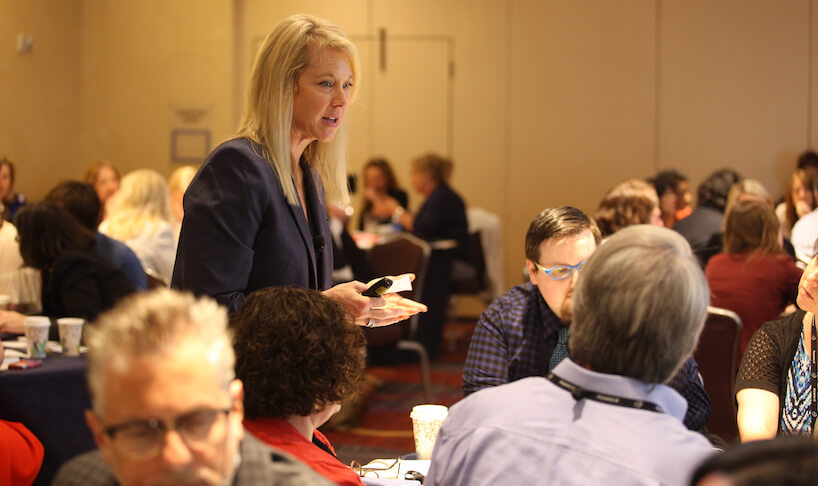Each day, you see some of the world’s best-known companies unveil new ideas to better connect with their customers. While names like Apple, American Express, Facebook, and Starbucks are catching your attention, you most likely look at their initiatives with the assumption that your organization could never manage to operate on the same playing field. So, you file away the idea under the category of “Very Cool and Not Possible at My Event.” Carla Johnson, author, storyteller, and creative explorer at Type A Communications, has another name for it, though: brand-detachment disorder. On Monday, June 12, Johnson discussed the disorder at the PCMA Education Conference session, “The Power of Personal: Using Event Marketing to Build Loyalty.”
“We have a tendency to dismiss the relevancy” of ideas that other brands in leading industries push out, Johnson said, “and say that we can’t innovate like they do. We make excuses about budgets and resources when we hear about brands like Apple and Southwest and say that their ideas would never work in our own organizations.”
For event organizers of niche associations, the rationale makes sense. How could a tiny budget and small staff ever manage to embrace the mindset of publicly traded companies with billion-dollar valuations? However, Johnson said that this approach leads to stale ideas and status-quo thinking. “When we tune things out too much,” Johnson said, “we lose the opportunity for inspiration.”
Johnson helped participants in the session understand the value in paying close attention to the creative work of consumer-focused companies and thinking about how to borrow some inspiration. “Look at the brilliance behind the provocative work of great brands and apply it to your own company,” Johnson said.
This doesn’t mean copying those ideas directly. Instead, it means being more open to observing the world around you rather than focusing on the resources at your disposal. “You have to look for inspiration,” Johnson said. “But to do that, you have to be brave, curious, open, and excited. Look at what inspires you in your own day, and connect the dots to what you do with your own work.”
Looking for some help to be more receptive to extraordinary ideas? Check out this advice from Convene, and stay tuned to pcma.org and pcmaconvene.org for more insights from the 2017 Education Conference.

